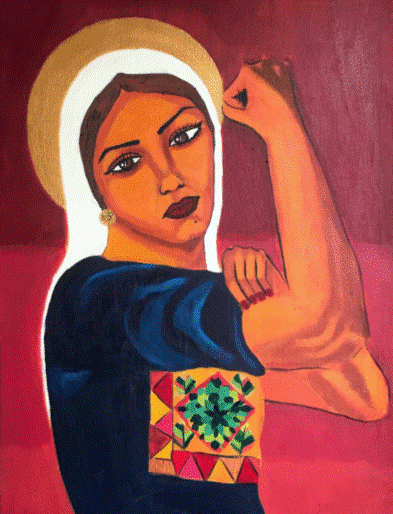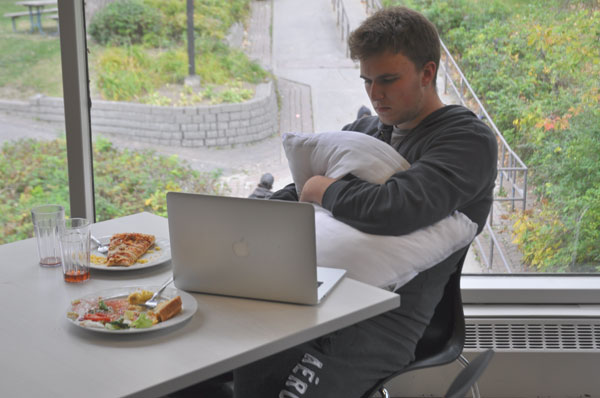As feminist professors, it is our job to engage with Palestinian justice, in part because of the pivotal role Palestine plays in increasingly popular calls for transnational feminist frameworks to dismantle the structures of racism, heteropatriarchy, economic, environmental and colonial injustice around the world. We are just doing our jobs when we affirm Palestinian lives, not as source material severed from practice for abstraction, as Palestinian scholars Nour Joudah, Randa M. Wahbe, Tareq Radi and Dina Omar taught us, but as a field of knowledge in which Palestinian humanity and freedom are givens, and not a radical point of departure.
Some of the most acclaimed and influential feminists of our time have, for many years now, been actively involved in the struggle of Palestinians to resist dispossession under the conditions of Israeli settler colonialism, apartheid, and genocide. The breadth and depth of transnational feminist work on Palestine is impossible to adequately capture in one letter, but as late Black feminist poet June Jordan put it, Palestine is a moral litmus test for the world.
From June Jordan, we also learned about the ways in which the suffering of the Palestinian people is connected to racist state violence that Black people endure. She helped us imagine more habitable futures that cross national and cultural boundaries, continuing the long legacy of kinship between Palestinian and Black freedom. In a poem entitled, “Moving towards Home” (1982), Jordan wrote:
I was born a Black woman
and now
I am become a Palestinian
against the relentless laughter of evil
From Angela Davis, we learned that justice is indivisible (2013) and that Palestinian freedom is an abolitionist struggle (2016). Davis’ lifelong sense of solidarity with Palestine is rooted in her own experiences in the Black Liberation Movement. For example, she writes compellingly about when she was incarcerated in 1970: “I can still remember how humbled I felt upon receiving a beautiful letter of solidarity signed by Palestinian political prisoners … Some 40 years later, when I joined a solidarity delegation to Palestine of women of color and indigenous scholar-activists, I met a Palestinian activist who told me that he was one of the imprisoned people who had signed that solidarity message so many years ago. When we embraced, I experienced a profound sense of satisfaction with the trajectory of my life and how it has intersected with so many others around the world who again and again collectively generate the hope that radical transformation is being inscribed on the agendas of our futures” (2024).
Judith Butler taught us that “if the charge of antisemitism becomes a tactic to suppress open criticism and debate on the State of Israel, its practices of dispossession and occupation, its founding and the ongoing implications of that founding for Palestinians, then it will lose its claim to truth” (2017). And as we learned from Independent Jewish Voices (IJV), the broad Palestinian solidarity movement repudiates antisemitism, but antisemitic incidents have occurred. We stand with IJV and remain vigilant in correcting or condemning the people who commit antisemitic acts as Jewish members of our communities face rising antisemitism. The safety of Jews is intrinsically linked to the safety of Muslims.
From Lila Abu-Lughod, we learned that Muslim women do not need saving, especially not from the West, still in denial about the brutality of global capitalism, the non-redistribution of wealth and growing militarization (2013). From Jasbir Puar, we learned liberal politics incorporate certain queer subjects into the fold of the nation-state, instrumentalizing queerness and feminism in the name of colonial and state violence. Puar also taught us that Israel deliberately and systematically maims Palestinians in an attempt to quell their resistance to Israeli settler colonial violence (2017). From Alice Wong, we learned why Palestinian Liberation Is Disability Justice (2023) and Allie Cannington taught us that disabled people know all too well what it means to be dehumanized and left behind (2023). Both Wong and Cannington write productively about how a person’s experiences with disability make it intuitively clear that what is happening to the Palestinian people is unacceptable.
Although transnational feminism has at times been fraught because of the reluctance of colonial feminists to account for the power differentials and complicities that structure their relations, when the Assembly of First Nations unanimously recognized Palestinians as Indigenous people (2023), we also learned from Ellen Gabriel that student encampments for Gaza are welcome on Indigenous land (2024). From students at encampments at the University of Ottawa, we learned that young people are leaders in the push to end the funneling of our money to support violence against Palestinian people. We must follow their lead and urgently demand that our institutions disclose investments and divest from genocide. After all, transnational and Palestinian feminists (2015) have long argued that the Boycott, Divestment and Sanctions (BDS) movement has created a coherent transnational feminist response to the crisis in Palestine that is materially rooted in justice for all.
In solidarity statements that resemble “love letters” from around the world, feminists have called upon one another to “unequivocally answer and amplify” the call for “feminists everywhere to speak up, organize, and join the struggle for Palestinian liberation”. For example, “recalling the expressed interest of different western governments in prioritizing feminist foreign policies”, Feminists In Kenya (FIK) remind us that “a true feminist foreign policy is inherently anti-imperialist and prioritizes demilitarization and de-escalation of war”. Grounded in transnational feminist solidarity and unwavering support of the people of Palestine, statements such as these have been an important and successful organizing tool, which perhaps explains why today, some university administrations have taken actions to prohibit and delegitimize such statements.
Indeed, this activism has often come at a cost. For example, as Barbara Ransby points out, INCITE: Women of Color Against Violence, a feminist activist group with thousands of members that included prominent Black feminist leadership, lost financial support because they mentioned support for Palestinian women’s struggles in a 2002 call for papers. In 2018, the Birmingham Civil Rights Institute offered Angela Davis a human rights award, but then briefly rescinded the honor because of her activism in support of Palestine. At the University of Ottawa, the Institute of Feminist and Gender Studies has been on the receiving end of a campaign of harassment and intimidation against its members, both individually and as a collective, since we signed a Palestinian solidarity statement in 2021 along with more than 150 other feminist and gender studies departments, associations and centers. Given that violence is sometimes directed at feminist and gender studies professors and students, this pattern of hostility is particularly unwelcome. We. Will not. Be silenced.
During these terrible times, we are buoyed by alliances on university campuses that bring together Black student organizations, Queer student groups, Disability and Indigenous activists with Students for Justice in Palestine and campus chapters of Independent Jewish Voices. The “recurring simultaneity of grief and pride”, as Nour Joudah, Randa M. Wahbe, Tareq Radi and Dina Omar put it, is one of the central truths of Palestinian life. As mass killing becomes increasingly ordinary in the news, our hearts break as we witness Palestinian sorrow, but also, burst with adoration in the wake of their defiance, beauty, strength, coordination, pride and resistance.
As Neferti X.M. Tadiar wrote in 2012, “to take a stand in solidarity with and to be involved in the struggle of Palestinians to resist and transform the conditions of their own dispossession and disposability — to join in their aspiration for collective freedom and self-determination – is also to participate in the remaking of global life, which cannot but be a paramount feminist act”. Statements, love letters, poems and petitions are some of the most important ways that feminists around the world connect and communicate with one another as we strive to make the world better. For Every One.
Following the call from Palestinian feminists, we urge our colleagues to join us in continuing to speak about Palestine, teach about Palestine, and confront the complicity of our institutions and governments in the brutality and violence against them.
Endorsed by faculty members at the Institute of Feminist and Gender Studies, University of Ottawa.







